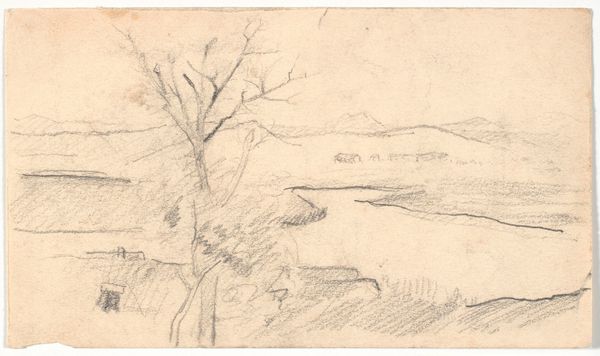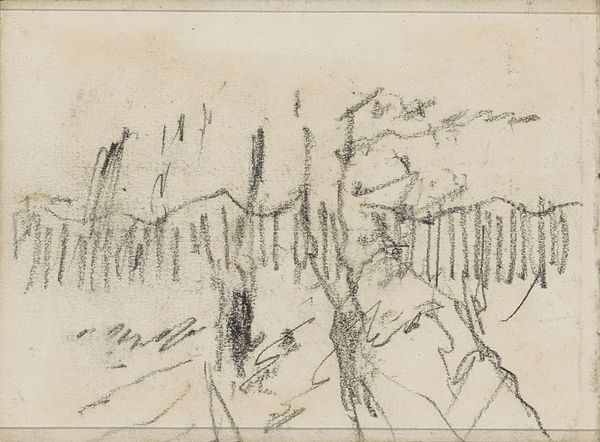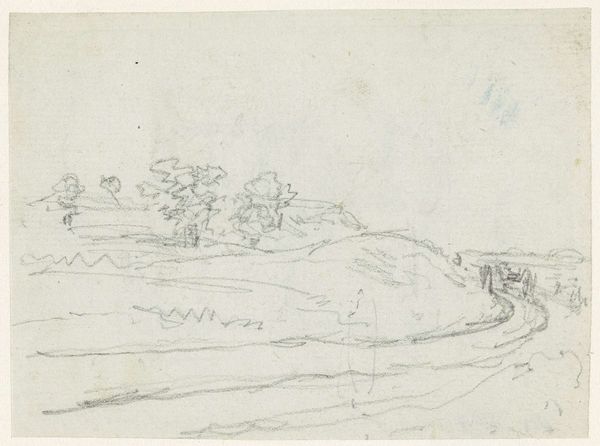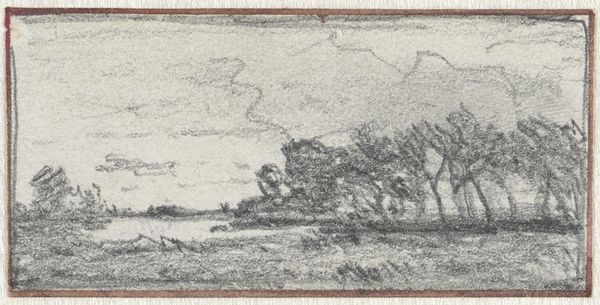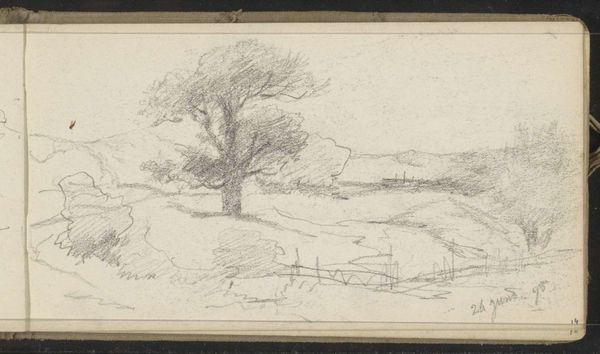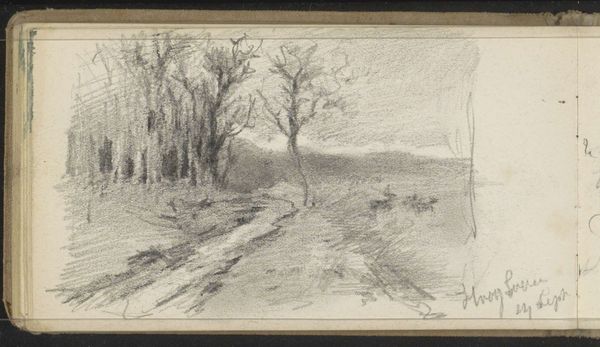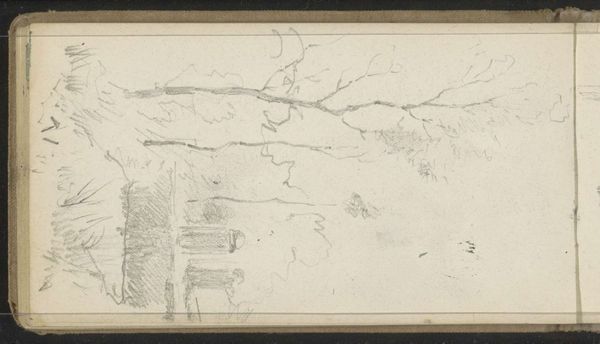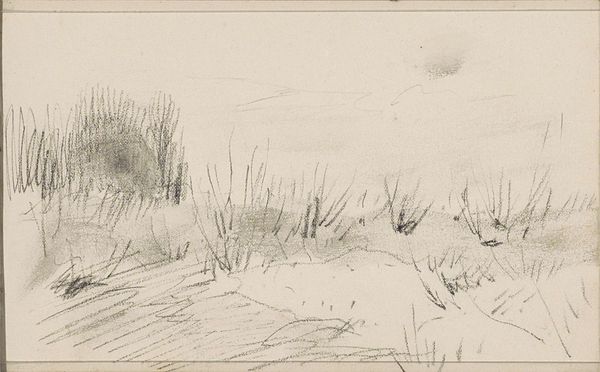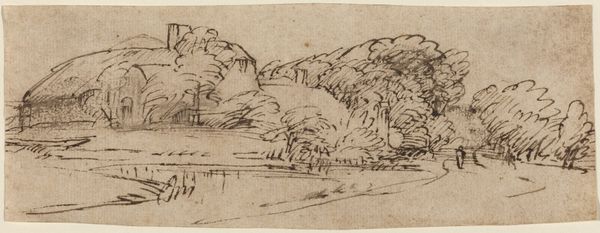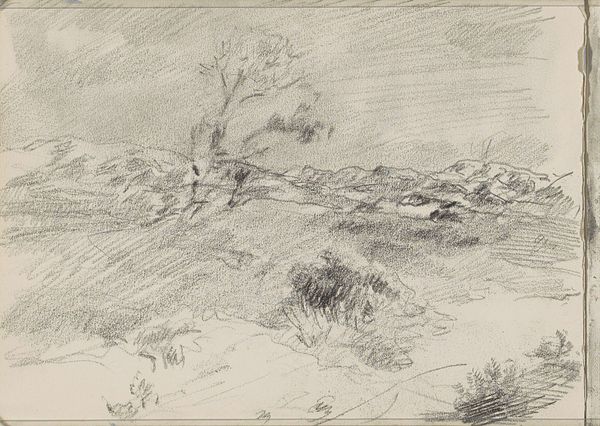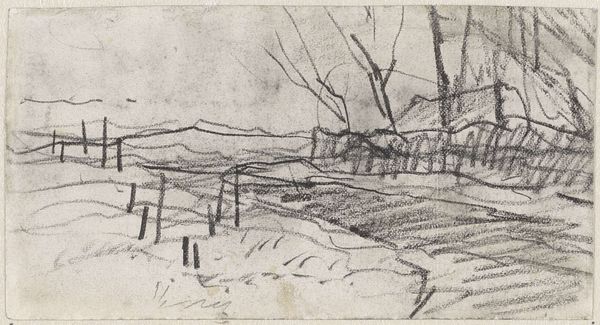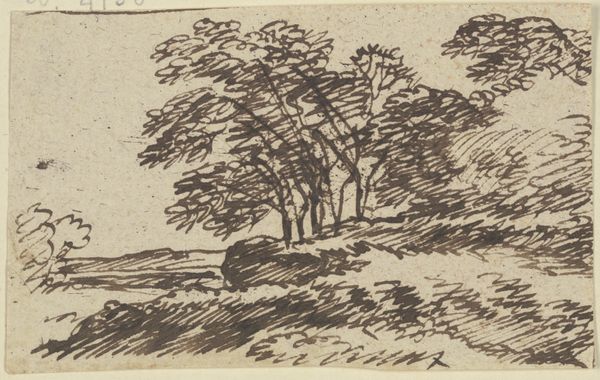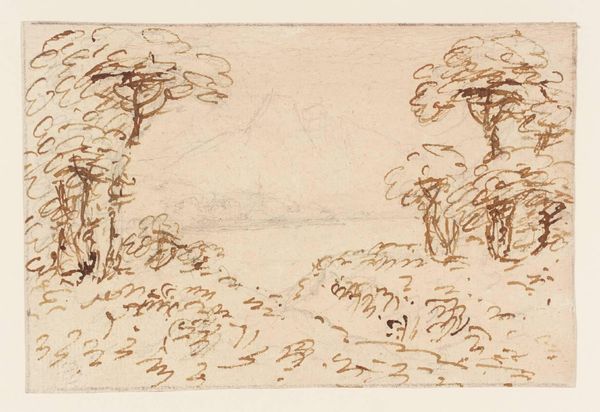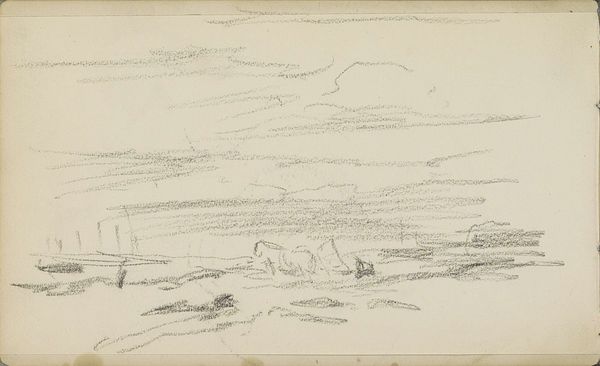
Copyright: Rijks Museum: Open Domain
This landscape drawing was made by Hermannus Adrianus van Oosterzee, likely in the late 19th or early 20th century. The landscape, though simple, evokes a sense of timelessness through the stark trees and open path. The tree, a central motif here, appears across cultures as the axis mundi, connecting the earthly and spiritual realms. From the Norse Yggdrasil to the tree of knowledge in biblical lore, it symbolizes life, growth, and interconnectedness. Note, however, the barrenness of the depicted tree. This could be a visual manifestation of the melancholic mood often found in Romantic-era landscapes, reflecting a deeper, psychological connection to nature's cycles. The path leads the viewer's eye into the distance, suggesting a journey, both literal and metaphorical, and this path echoes in countless works from Caspar David Friedrich to contemporary photography. Its enduring presence reflects our collective human experience: the continuous search for meaning, direction, and the unknown that drives us ever forward.
Comments
No comments
Be the first to comment and join the conversation on the ultimate creative platform.
